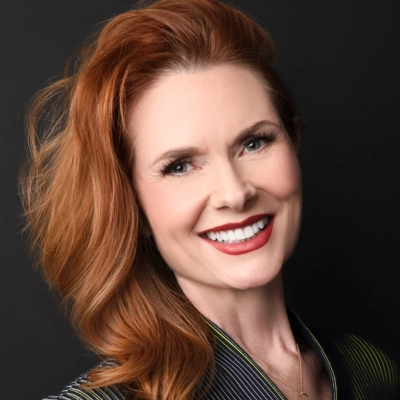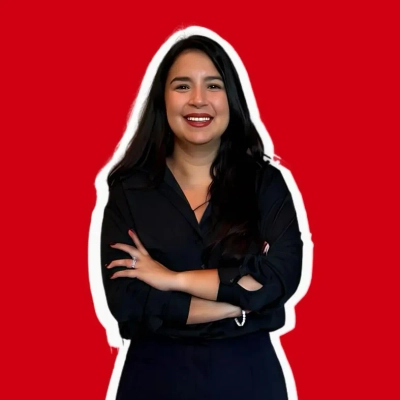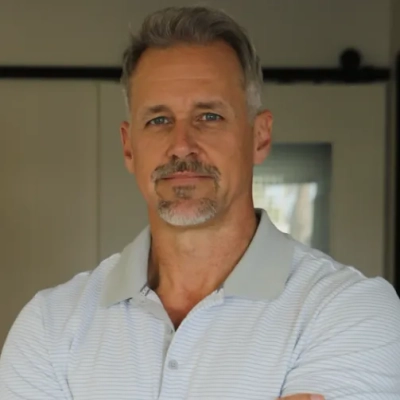Effective leadership requires balance, and top CEOs understand that self-care is not optional but essential for sustained success. This comprehensive guide shares proven unwinding strategies from leadership experts who have mastered the art of balancing high performance with personal wellbeing. Discover how intentional rest and self-awareness create the mental clarity needed for superior decision-making that transforms leadership from a source of stress to a position of strength.
- Self-Leadership Forms the Foundation of CEO Success
- Balance Transforms Leadership From Pressure to Peace
- Rhythm, Not Hustle, Builds Sustainable Leadership
- Clear Heads Make Better Leadership Decisions
- Make Rest Part of Your Business Strategy
- Self-Care Creates Headroom for Better Leadership
- Leadership Energy Requires Strategic Self-Care
- Unwinding Enhances Leadership Judgment and Credibility
- Build Balance Into Life Like Systems Into Business
- Power Comes From Your Ability to Relax
- Intentional Pauses Create Leadership Clarity
- Rest Promotes Clarity as Competitive Advantage
- Simple Self-Care Prevents Leadership Burnout
- Deep Self-Awareness Precedes Effective Leadership
- Approach Priorities in Seasons, Protect Health Always
- Discover Your Personal Unwinding Method
- Mental Rest Improves Leadership Decision Making
Self-Leadership Forms the Foundation of CEO Success
The hardest lesson I learned as a leader is that exhaustion is not a badge of honor. Early in my career, I believed I had to be available 24/7. It impressed no one, and it nearly cost me my health. The turning point came when I learned to step away in order to exercise, read, and spend time with family. I was more present, my decisions became sharper, and my team’s performance followed.
That experience taught me what I now share with aspiring CEOs: self-leadership and investing in yourself are not optional. They are critical if you want to be the leader your team needs today and the visionary they need for tomorrow. When you invest in your own well-being, clarity, and growth, you elevate your entire team.
As CEO, you are responsible for more than operations and outcomes. You hold the vision that sets the stage for a bright future. To sustain that responsibility, you must create space for downtime and reflection. Without it, perspective narrows, decision-making suffers, and your ability to guide others diminishes.
Reflection and renewal look different for every leader. For some, it is time at the gym or on the running trail. For others, it is journaling, meditation, or reading to generate new ideas. Many leaders recharge through family time, where laughter and conversation remind them of what matters most. Others find renewal in hobbies, hiking, or simply unplugging from devices to enjoy quiet space. The practice matters less than the discipline of making time for yourself.
The organizational impact is clear. Balanced leaders make better strategic calls, stay calmer in crises, and create cultures where resilience and creativity thrive. When you model balance, your team feels permission to care for themselves, which fuels performance and retention.
For aspiring CEOs, the message is clear. Balance is not time away from leadership—it is what sustains leadership. Protect time for rest, reflection, and family. Invest in yourself as intentionally as you invest in your business. When you invest in yourself, you elevate your team.

Balance Transforms Leadership From Pressure to Peace
One of the greatest lessons I’ve learned as both a leader and entrepreneur is that balance is not a luxury; it’s a necessity for sustained success. When I first stepped into leadership, I carried the weight of believing I had to be “always on.” But I quickly discovered that constant output without intentional renewal leads to burnout, diminished creativity, and strained relationships.
My advice to aspiring CEOs is to recognize that unwinding is not wasted time: it’s an investment in your leadership. Whether it’s prayer, quiet reflection, exercise, or simply spending time with loved ones, these practices restore clarity and resilience. For me, daily prayer and moments of stillness are non-negotiable. They ground me, give me perspective, and allow me to lead from a place of peace rather than pressure.
The key lesson I’ve learned is this: you cannot pour into others from an empty cup. By prioritizing self-care, you model healthy boundaries for your team, foster sustainable performance, and create the emotional bandwidth to navigate challenges with wisdom and grace. True leadership isn’t about how much you do—it’s about how well you steward your energy to serve others effectively.

Rhythm, Not Hustle, Builds Sustainable Leadership
Aspiring CEOs often believe success requires relentless hustle, but the truth I’ve learned in over two decades in aesthetics and wellness is that sustainable leadership comes from rhythm, not constant motion. When I first launched skinBe Med Spa, I carried the weight of building a vision bigger than myself. I believed pausing was a luxury I couldn’t afford. What I’ve since discovered is that unwinding is not indulgence, it’s infrastructure.
The higher you rise in leadership, the more your energy becomes the currency that drives your team, culture, and results. If you run on depletion, you lead from scarcity. If you prioritize renewal, you lead from abundance. My most profound growth as a CEO has come not from powering through, but from intentionally stepping back. Whether it’s Pilates, travel, time in nature, or simply creating stillness in a demanding week. These practices sharpen clarity, restore grit, and fuel creativity.
At skinBe Med Spa, our brand embodies transformation from the inside out. We tell our clients daily that wellness is inseparable from confidence, beauty, and longevity. That philosophy applies to leadership too. The lesson is simple: self-care is not separate from success. It is the scaffolding that makes success possible.
For me, the turning point was realizing that balance is not about equal time in all things, but about presence in the things that matter most. When I honor recovery with the same commitment I give strategy and growth, I become a stronger, more visionary leader.
So my advice is this: Build rituals that anchor you, protect white space in your calendar as fiercely as you protect revenue goals, and treat your health and well-being as non-negotiable KPIs. Your team will feel the difference, your clients will sense the difference, and most importantly, you will lead from a place of grounded strength. Leadership is not just about scaling a company; it’s about scaling yourself.

Clear Heads Make Better Leadership Decisions
For aspiring CEOs, I say simply this: Don’t make rest optional. In the early stages of SourcingXpro in Shenzhen, I thought working 14 hours in a row made me a leader. It almost got me burned out. I learned the most important lesson: self-care is not about being spoiled, it’s about being clear-headed. After I started actually resting, quiet evenings at home with no calls, my decision-making got better, my patience for clients extended, and once in a season, that difference kept a $40k account alive and thriving because I didn’t react out of frustration. Leadership takes energy, and balance is the way you shield that energy. I’m confident sharing that tip on Influize because it’s easy to forget, but a big part of growth.

Make Rest Part of Your Business Strategy
One of the most valuable lessons I’ve learned as a CEO is that self-care is not a luxury—it’s a necessity for sustained leadership. In the early days of building Pawland, I often pushed myself to the edge, believing constant hustle was the only path to success. Over time, I realized that when I neglected rest and balance, my decision-making suffered, and so did my team.
My advice to aspiring CEOs is simple: treat unwinding and balance as part of your business strategy. For me, creating small rituals—whether it’s a daily walk with my dog or unplugging for a short break during intense weeks—helps me recharge and return with clarity. Leaders set the tone, and when you prioritize self-care, your team feels empowered to do the same, creating a healthier, more resilient organization.

Self-Care Creates Headroom for Better Leadership
Leadership is a long game, and aspiring CEOs need to understand that. When I was running my firm, there was a direct correlation between my mental well-being, how I treated my team, and thus how the culture of the office felt.
I learned that when I took care of myself – took time to be outside, ride my bike, ski, eat well, sleep well, and so forth – I could take better care of my team and the company. Self-care gave me headroom to handle the stresses of running a company appropriately. When I didn’t take care of myself? My window of tolerance would be incredibly small, and every point of friction or bump in the road became a reactionary event. When that happened, my team was disincentivized to bring up challenges.
That’s why balance is important. Continued overwork and imbalance is the sign of a systemic problem in the design of the business, and/or in a CEO’s understanding of how to design their life for optimal performance. Do what it takes to be your best self, because your best self is what your team, partners, and clients respond best to.

Leadership Energy Requires Strategic Self-Care
As a leader, I’ve learned one crucial truth: you cannot pour from an empty cup. Neglecting self-care doesn’t just risk burnout – it can lead to serious health issues that undermine your ability to lead. Your energy – the level, the quality, the clarity – directly shapes your leadership presence. When your energy is off, even the best ideas fail to land.
Self-care isn’t indulgence; it’s strategic. It’s the foundation for sustainable, high-impact leadership. How you recharge can be simple: yoga, stretching, dancing, meditation, mindful walks in nature, or barefoot grounding in your garden. Or more adventurous: cold plunges, drumming or sound therapy, mindful gardening, or even short digital detoxes. The method matters less than the intention: to pause, breathe, and replenish.
Many aspiring CEOs feel pressure to be “always on,” but the most effective leaders honor their own limits and rhythms. When you consistently show up for yourself, your presence elevates your team. Focus sharpens, decisions improve, and your influence grows. Leadership energy is contagious – nurture it, protect it, and your impact multiplies.
Self-care is more than personal benefit – it’s a leadership strategy. Your health, vitality, and mental clarity are your greatest assets. Treat them as such, and you’ll lead not only longer but stronger, smarter, and with authentic presence.

Unwinding Enhances Leadership Judgment and Credibility
I’d tell aspiring CEOs that unwinding is not indulgence; it’s strategy. The higher you go, the more people rely on your judgment, and judgment suffers when you are running on fumes. Balance does not mean splitting time equally between work and life. It means creating intentional space to recharge so that when you are working, you are sharper, calmer, and more effective.
From a cognitive behavioral perspective, our thoughts, emotions, and behaviors are in constant dialogue. When leaders fail to step back, stress-driven thoughts begin to dictate their tone, decision-making, and even their health. Taking time to recharge interrupts that cycle and resets perspective. One CBT tool I encourage clients to use is thought reframing: shifting the belief that “rest is wasted time” to “rest is an investment in better leadership.” That simple shift creates permission to prioritize well-being without guilt.
Another CBT strategy is behavioral activation. Instead of hoping self-care will happen when there is a free moment, schedule restorative activities into your calendar with the same seriousness you would give a client meeting or a board presentation. These deliberate behaviors reinforce healthier thought patterns and help prevent burnout before it starts.
The key lesson I have learned is that self-care directly affects leadership credibility. Neglecting it eventually shows up in impatience, poor judgment, or exhaustion, and teams notice. When leaders set boundaries, take breaks, and model sustainable habits, they create a culture where others feel permission to do the same. That does not just benefit individual employees. It strengthens the entire organization.

Build Balance Into Life Like Systems Into Business
One of the most important lessons I share with CEOs is that leadership is not a sprint; it’s a marathon. I know it is an old saying, but so very true. The pressure to constantly be “on” can make it tempting to sacrifice rest, hobbies, and personal time, but over the long run, that mindset leads to burnout and diminished effectiveness. It can also lead to resentment if you continue to pass up time with your family and friends. A leader who is exhausted and stretched too thin simply cannot show up with the clarity, patience, and inspiration their people need.
The key lesson I’ve learned is that self-care is not selfish, it’s strategic. When I take time to step away, unwind, and focus on something outside of work, I come back with renewed perspective and energy. That might mean spending time with family, diving into a good book, or even just unplugging for a few hours. These moments of balance help me process challenges more clearly and avoid making reactive decisions. It also helps me remember what I am pushing for.
For aspiring CEOs, my advice is simple: build balance into your life the same way you build systems into your business. Put it on your calendar, protect it, and treat it as a non-negotiable. By planning it with your team aware, you will feel less guilt. By doing so, you’ll find that your leadership presence becomes steadier, your problem-solving sharper, and your influence stronger. You will also be helping your team rise to the occasion without your constant managing; this is sometimes when they learn the most. In the end, taking care of yourself isn’t just good for you; it’s one of the greatest gifts you can give your organization.

Power Comes From Your Ability to Relax
Your ability to generate power is directly related to your ability to relax and psychologically detach from work. Your non-anxious, non-reactive way of being will center your entire organization, and disconnecting and having other interests beyond your work will give you wisdom through perspective.
Our willpower is finite and needs to be restored frequently. Every leader has different needs for restoration, so give yourself sufficient recovery to consistently show up as your best. The peak performance term for this is “optimal functioning”. For me, it is one week off every quarter and disconnecting completely every Friday through Sunday. For others, it is less. So know what your needs are and take responsibility for meeting them.

Intentional Pauses Create Leadership Clarity
In the pursuit of leadership and success, it’s easy to become absorbed in the external demands of the role. However, when we take time to unwind and cultivate inner peace, we open the door to more clarity, calm, creativity, and deeper wisdom. It is what allows us to lead with heart and intuition.
A calm presence inspires and uplifts others, it comes from choosing to pause, to breathe, to step away from the noise. Taking responsibility for your own well-being can create a ripple effect that sets the tone for everyone around you.
Making space each day to consciously connect with your breath or to meditate can create an inner state of balance that will enrich your leadership and your life as a whole. A few other simple practices can also help bring balance into even the busiest life. Reflection, whether through journaling or meditation, allows us to process thoughts and emotions, opening space for insight and creativity. Time in nature restores perspective and it is grounding. Physical movement strengthens the body and uplifts the mind. And disconnecting regularly from digital devices helps reduce mental clutter and unwind.
When these practices are woven into a daily routine, they help to navigate the complexities of leadership and life with grace and resilience. Even brief moments of intentional pauses can have a profound positive impact. The perception of busyness often arises from a mind caught in the whirlwind of activity, however within this whirlwind, there are always moments of stillness waiting to be acknowledged – such as taking three deep breaths before starting a meeting. These moments of pause can recalibrate the mind and reduce the sense of urgency that often accompanies a busy life. They are not time taken away from responsibilities, they expand the capacity to meet them with more clarity and energy.
When taking time for self-care feels like adding another task to an already full schedule, the key is to shift this perception, and reframe it as a supportive practice enhancing one’s ability to manage life’s demands more effectively.
Those who feel they lack time can start with small, manageable steps, integrating them into existing routines, for examples mindful breathing during a commute, or listening with more presence. These activities don’t require extra time, only a shift in awareness.
Ultimately, we can all discover that the time we invest in our well-being is valuable and essential to live with a deeper sense of wholeness and grace.

Rest Promotes Clarity as Competitive Advantage
The key lesson I’ve observed repeatedly in my work with leaders is that clarity becomes a competitive and collaborative advantage.
Clarity emerges through establishing self-care routines, not endless activity.
Self-care practices promote reflection, pattern recognition, and performance improvement.
Similarly to professional athletes who understand that peak performance isn’t just about practice—it requires recovery, nutrition, and mental conditioning—professional leaders understand that self-care practices create space for the kind of self-development that drives growth.
When leaders allow themselves space to be, rather than do, they develop the presence and intuition needed to curate opportunities and prioritize. It’s about working smarter, not harder.
It is in moments of space and rest that connections are made and creativity flourishes. Both work and rest are necessary, and finding the right balance between them is crucial, not just for sustainability, but for innovation.
Becoming connected to our immediate surroundings develops relationships, and everything in leadership comes down to relationships—with oneself, others, and time.
In my work with high-achievers, I’ve consistently observed that leaders who prioritize adequate rest periods experience less burnout, greater wellbeing, and more sustainable growth trajectories for themselves and their organizations.
It’s easy to fall into the trap of glorifying focused work because of its importance in achievement. A shift in mindset from constant hustle to valuing time spent in rest and play is a challenge for many aspiring CEOs. But it’s vital for the longer term.
Finding balance isn’t just good advice—it’s essential for the sustainable growth that leads to purpose-driven success.

Simple Self-Care Prevents Leadership Burnout
My advice to aspiring CEOs is to always have some time for yourself. It doesn’t have to be luxurious. Make it simple and small, but what matters is that you use that time to unwind to avoid burnout. In leadership, it’s easy to fall into the mindset that working nonstop will show commitment, but that approach will give you exhaustion over time. It’s really important to find balance in everything we do. But, start with setting boundaries and having space to recharge by doing things that you love to do, like spending time alone or with family, doing exercise, or even taking short walks to clear your mind. When you step back and take care of yourself, you can be more focused and energized.
One key lesson I’ve learned is that self-care creates a big impact on leadership and success. In my early career, I pushed myself to the limit, which I regret because I believed that being constantly available would make me a better leader. But I realized that I will not be present for my team and the company if I get worn out. So to avoid that, I prioritize rest and balance, and I didn’t just do it for myself, but I also encourage my team to do the same. For me, a healthy leader can lead a better and healthier organization.

Deep Self-Awareness Precedes Effective Leadership
My advice to aspiring CEOs is this: cultivate deep self-awareness before you try to lead others. Sustainable leadership is not about staying perpetually ‘busy, competitive, or ambitious’ but rather it’s about leading with influential presence, clarity, and precision. That begins with understanding your emotional intelligence, self-recognition of your nervous system regulation, and the ability to discern who you are beyond your role or title. When you understand your leadership style, your energetic capacity, and how to make aligned, correct decisions for yourself, you lead with far less resistance and far more ease. This self-knowledge strengthens your communication strategies, allowing you to influence with authenticity rather than force. Trust and influence become the natural byproduct. True self-care in leadership is the strategic discipline of honoring who you truly are holistically so you can lead with sustained impact.

Approach Priorities in Seasons, Protect Health Always
My advice to aspiring CEOs is to approach priorities in seasons. There will be times when your business must take center stage and other times when your family or self-care should come first. The key is recognizing what season you are in and aligning your focus accordingly while making sure those closest to you are on the same page. One lesson I have learned is that if my health suffers, everything else unravels. Protecting your mental outlook, physical energy, and overall capacity is not optional. It is what allows you to consistently show up as a strong and effective leader.

Discover Your Personal Unwinding Method
I would tell aspiring CEOs to try to discover specifically what helps them unwind and find balance. For me, limiting my screen time after work is very impactful. For others, making sure to spend a ton of time with friends and family outside of work makes a big difference. Others find it helpful to maintain an exercise routine or get outside regularly. Find out what it is for you and be intentional about implementing it.

Mental Rest Improves Leadership Decision Making
Taking a break will help you to stay focused and make good decisions. The main aspect that CEOs are likely to forget is that normal mental and physical rest improves productivity. These are the requisite associations in sport, in walking, or in spending time with the family.
Balance does not imply spending the same amount of time on work and rest, but you are choosing the time that will bring you back. It involves doing things to restore your energy either through movement or rest. Even a simple stroll or a quick exercise can help open your mind and imagination, and you might be capable of returning to the office with a fresh mindset. This is an extremely simple habit which helps to prevent burnout and lead with greater force.


